Science|Business hosted a full day webcast of their event Research Strategies: Europe 2030 and the next Framework Programme.
There are a number of consulations forthcoming, where you will be able to contribute:
> Horizon 2020 interim evaluation (due to launch w/c 17/10/16)
> FP9 consulations (expected early 2017)
Please take a look at Policy directions – a synthesis, which drew together the discussions from the strategy and policy workshops:
> Connected health: Can big data help us live healthier, longer?
> Energy and resources: Can innovation really help us manage the planet better?
> Security and defence R&D: How can we make Europe safer?
> Connected cars: Can autos, ICT and regulation work together?
> Open Innovation: How public labs and private investment can work together
> Scaling up: How can Europe grow its companies faster?
> Enabling technologies: How can R&I re-power Europe’s industries?
Key features for possible inclusion in the next Framework Programme (FP9), the successor to Horizon 2020, include:
> A greater role for Social Sciences and Humanities much earlier in the innovation process, rather than being brought in to make new technology acceptable to the end user, late in the day
> Making innovation inclusive by engaging with all stakeholders, linked to a drive towards a shared vocabulary and cultural understanding, especially between industry and academia
> Demand-driven research
> Open data and the implications for security and privacy
> Impact, with the ability to measure, monitor, demonstrate and communicate impact being specifically mentioned – there needs to be a credible promise of impact / added value for society and growth
> Excellence is still paramount
> FP9 activity needs to be part of society, part of the solution and perceived as such.
Further hints of what may be to come can be found in Commissioner Moedas’ speech Embracing an ERA of Change, Berlin, 10/10/16.
The inherent dilemmas presented by Kurt Vandenburghe (Director Policy Development and Coordination at European Commission’s DG Research and Innovation) are:
> Prioritisation may exclude some stakeholders
> The need for a careful balance between ensuring continuity yet embracing change, as we move from Horizon 2020 (FP8) to FP9
Want to know more? Watch out for further announcements made on this blog. As well as Science|Business being an excellent source of EU information, BU also has a subscription to UKRO, to which BU staff can subscribe with their BU email.
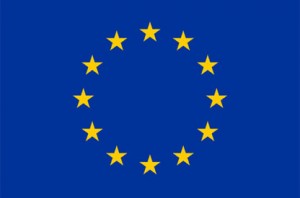 Our informative “Coping with the new EU Landscape” 2 workshops will be taking place this Thursday the 29th of September in the Octagon on Talbot Campus at:
Our informative “Coping with the new EU Landscape” 2 workshops will be taking place this Thursday the 29th of September in the Octagon on Talbot Campus at: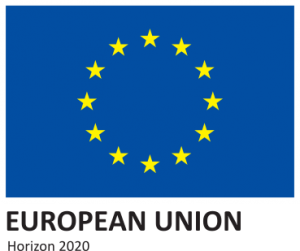 Uber, Amazon, AirBnB, Netflix… The Internet has had many impacts to the economy. Not only to the consumer market, but widely across the service sector. There is a large amount of integration and automation to enable things like instant order confirmations. Work in these aspects of business processes is quite well established in the service sector.
Uber, Amazon, AirBnB, Netflix… The Internet has had many impacts to the economy. Not only to the consumer market, but widely across the service sector. There is a large amount of integration and automation to enable things like instant order confirmations. Work in these aspects of business processes is quite well established in the service sector.
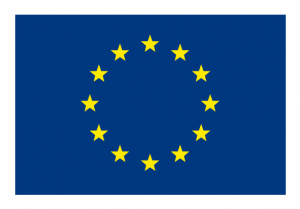
 Secure, clean and efficient energy, (Horizon 2020, Societal Challenge 3) has a number of opportunities relevant to BU in 16/17. With specific calls ranging from consumer behaviour to energy efficiency and renewables, there really is something for everyone in Societal Challenge 3.
Secure, clean and efficient energy, (Horizon 2020, Societal Challenge 3) has a number of opportunities relevant to BU in 16/17. With specific calls ranging from consumer behaviour to energy efficiency and renewables, there really is something for everyone in Societal Challenge 3. Travel Grant Scheme: Participation in the China High-Tech Forum and Brokerage Event during the China Hi-Tech Fair 2016 in Shenzhen, China
Travel Grant Scheme: Participation in the China High-Tech Forum and Brokerage Event during the China Hi-Tech Fair 2016 in Shenzhen, China Societal Challenges, by their nature, require input from across the disciplines. Please read on, even if you
Societal Challenges, by their nature, require input from across the disciplines. Please read on, even if you  Horizon Prize – Birth Day
Horizon Prize – Birth Day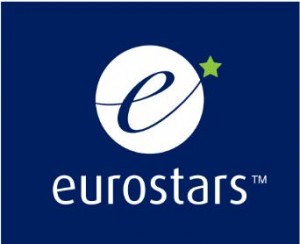 Eurostars supports international innovative projects led by research and development- performing small- and medium-sized enterprises (R&D-performing SMEs). With its bottom-up approach, Eurostars supports the development of rapidly marketable innovative products, processes and services that help improve the daily lives of people around the world. Eurostars has been carefully developed to meet the specific needs of SMEs. It is an ideal first step in international cooperation, enabling small businesses to combine and share expertise and benefit from working beyond national borders.
Eurostars supports international innovative projects led by research and development- performing small- and medium-sized enterprises (R&D-performing SMEs). With its bottom-up approach, Eurostars supports the development of rapidly marketable innovative products, processes and services that help improve the daily lives of people around the world. Eurostars has been carefully developed to meet the specific needs of SMEs. It is an ideal first step in international cooperation, enabling small businesses to combine and share expertise and benefit from working beyond national borders. With current events, it is important to keep up to date and UKRO are continuing to provide up to date information on all aspects of the UK’s access to EU funding. As a member of BU staff, you can received alerts, by signing up on the
With current events, it is important to keep up to date and UKRO are continuing to provide up to date information on all aspects of the UK’s access to EU funding. As a member of BU staff, you can received alerts, by signing up on the 
 Horizon 2020 considers gender as a cross-cutting issue and it shall be adequately integrated in research and innovation content at the level of Work Programmes and projects. Applicants to Horizon 2020 calls are encouraged to include the gender dimension in their proposals. The European Commission is continuously looking for experts with gender expertise in all areas of Horizon 2020 calls to evaluate submitted research proposals.
Horizon 2020 considers gender as a cross-cutting issue and it shall be adequately integrated in research and innovation content at the level of Work Programmes and projects. Applicants to Horizon 2020 calls are encouraged to include the gender dimension in their proposals. The European Commission is continuously looking for experts with gender expertise in all areas of Horizon 2020 calls to evaluate submitted research proposals.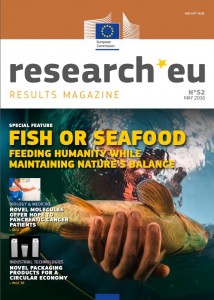
 Bournemouth University welcomed Mr Peter Huang, Deputy Director of the
Bournemouth University welcomed Mr Peter Huang, Deputy Director of the  Emily Cieciura, RKEO’s Research Facilitator for EU and International funding will be available to chat about funding opportunties from 1-2pm on Thursday 12th May 2016, based in the Global Hub room (DG68).
Emily Cieciura, RKEO’s Research Facilitator for EU and International funding will be available to chat about funding opportunties from 1-2pm on Thursday 12th May 2016, based in the Global Hub room (DG68).










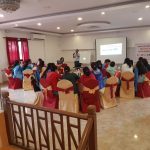 BU academic publishes in online newspaper in Nepal
BU academic publishes in online newspaper in Nepal Final day of the ESRC Festival of Social Science
Final day of the ESRC Festival of Social Science Using Art to enhance Research
Using Art to enhance Research Register now to attend the 17th Annual Postgraduate Research Conference – Wednesday 3 December 2025
Register now to attend the 17th Annual Postgraduate Research Conference – Wednesday 3 December 2025 Portrait Concert featuring BU academic at L’Espace du Son Festival 2025, Brussels
Portrait Concert featuring BU academic at L’Espace du Son Festival 2025, Brussels ECR Funding Open Call: Research Culture & Community Grant – Application Deadline Friday 12 December
ECR Funding Open Call: Research Culture & Community Grant – Application Deadline Friday 12 December MSCA Postdoctoral Fellowships 2025 Call
MSCA Postdoctoral Fellowships 2025 Call ERC Advanced Grant 2025 Webinar
ERC Advanced Grant 2025 Webinar Horizon Europe Work Programme 2025 Published
Horizon Europe Work Programme 2025 Published Horizon Europe 2025 Work Programme pre-Published
Horizon Europe 2025 Work Programme pre-Published Update on UKRO services
Update on UKRO services European research project exploring use of ‘virtual twins’ to better manage metabolic associated fatty liver disease
European research project exploring use of ‘virtual twins’ to better manage metabolic associated fatty liver disease